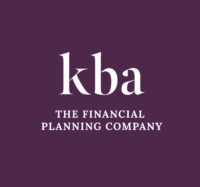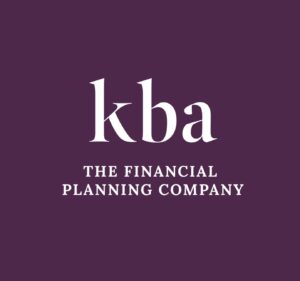When you think about your wellbeing, your finances probably don’t get a look in. Yet, financial wellbeing plays a key role in your overall wellbeing.
While it’s true that money can’t make you happy, not having enough money can cause stress and anxiety.
Optimising your financial wellbeing could help you enjoy life without having the constant niggling pressure that often comes when you have daily concerns about the state of your finances.
Don’t assume that having plenty of cash equates to great financial wellbeing
Knowing you have plenty of money in the bank can help, but financial wellbeing also involves:
- Being in control of your day-to-day finances
- Having the ability to cope with a financial shock
- Knowing you’re on track to meet financial goals
- Possessing the freedom to make choices in life.
While the definition of financial wellbeing is different for everyone, it can be broken into two distinct parts:
1. Having financial security – now and in the future
2. Understanding what makes you happy, and setting goals to help you achieve them.
So, as Mental Health Awareness Week draws to a close, now is the perfect time to examine practical ways to give your financial wellbeing a healthy boost. Read on for five simple and achievable steps to get you started.
1. Check in on your budget
The most important thing you could do to improve your financial wellbeing is to spend less than you have coming in.
To get a firm grip on your income and expenditure, and make sure you’re living within your means, start by reviewing your budget. If you don’t already have a household budget, it’s time to make one.
Start by listing all your fixed costs (mortgage, rent, bills, food, insurance), then you can see what you have left over to spend or save each month.
If you need to cut costs, review your bills and direct debits. Take the opportunity to give your finances a good spring clean – be ruthless and cancel anything that no longer delivers value.
Finally, make a note to repeat the same process again in a few months’ time and make it a regular habit.
2. Make a plan to tackle your debts
Unsecured debt can be a big drain on your finances and could prevent you from achieving peak financial wellbeing.
Typically, credit cards charge high levels of interest. So, if you have credit card debt, put a plan in place to either clear it, or reduce it as much as possible.
Switching providers or making overpayments could help you pay off outstanding debts quicker.
If this is something that may be appropriate for you, make sure you read the small print and check there aren’t any early payment charges. Plus, take care to ensure that the new deal really is better than the old one.
Tackling debt can feel daunting, but starting to actively reduce the money you owe could save you money and improve your financial wellbeing.
3. Be ready for a rainy day
How much do you have for a rainy day? Sometimes referred to as an “emergency fund”, ideally, you should have enough cash to cover around three to six months’ worth of normal expenditure. It’s sensible to hold such funds in an easy access savings account.
This provides you with an easily accessible pot of money to dip into in the event of an unexpected problem – to repair your boiler, pay a mechanic to get your car back on the road, or replace your phone.
Alternatively, this cash cushion could help fund a house move or simply provide invaluable peace of mind.
If you have a long-established emergency fund, check to see how much money you have on hand. Since the Covid pandemic, the cost of living has increased substantially, so you may need to top up your funds to ensure they still cover your normal monthly expenses.
4. Review your protection
The foundations of your financial plan rest on having a degree of protection. The insurance you need will depend on your circumstances. Typically, it’s wise to consider suitable protection for you, your health, your property, and your income.
Your ability to earn is often essential to your financial future, so it’s important to safeguard it. We’ll make sure you have the relevant covers and policies in place to protect things like your income and home, as well as your family.
Find out how important the right financial protection could be in this first-hand account from our client Nirvana Joy on our website.
5. Check your will and review your estate plan
According to Canada Life, more than half of adults in the UK haven’t written their will. If you’re among this number, now is the time to think about your legacy and talk to a financial planner about your options.
If you die without a will, or intestate, instead of going to the people you would have wished, your assets will be distributed in accordance with official legal guidelines. Dying intestate could also complicate and process of distributing your assets and can take time to finalise. Your estate could even become embroiled in a legal challenge.
Hopefully, you’re among those who already have a will in place. If so, make sure you revisit it regularly and keep it up to date so that it continues to reflect your wishes. Events such as births, deaths, and marriages might change your priorities and require you to make certain changes.
Read more: 5 top estate planning tips you could use to help mitigate Inheritance Tax
Spending some time to put plans in place now could help protect your assets and ensure you leave the legacy you wish to the people who matter most. We can help you with this – whether you need help with your will, or are concerned about Inheritance Tax eroding the wealth you leave behind, please get in touch.
Get in touch
If you would like to find out more about how we can help you improve your financial wellbeing, please get in touch.
Email contactme@kbafinancial.com or call us on 01942 889 883.
Please note
This article is for general information only and does not constitute advice. The information is aimed at retail clients only.
Note that life insurance plans typically have no cash in value at any time and cover will cease at the end of the term. If premiums stop, then cover will lapse.
Cover is subject to terms and conditions and may have exclusions. Definitions of illnesses vary from product provider and will be explained within the policy documentation.
The Financial Conduct Authority does not regulate estate planning, tax planning, or will writing.
Will writing is not part of the Openwork offering and is offered in our own right. Openwork Limited accept no responsibility for this aspect of our business. Will writing is not regulated by the Financial Conduct Authority.
For specialist tax advice, please refer to an accountant or tax specialist.
Approved by The Openwork Partnership on 15/05/24



